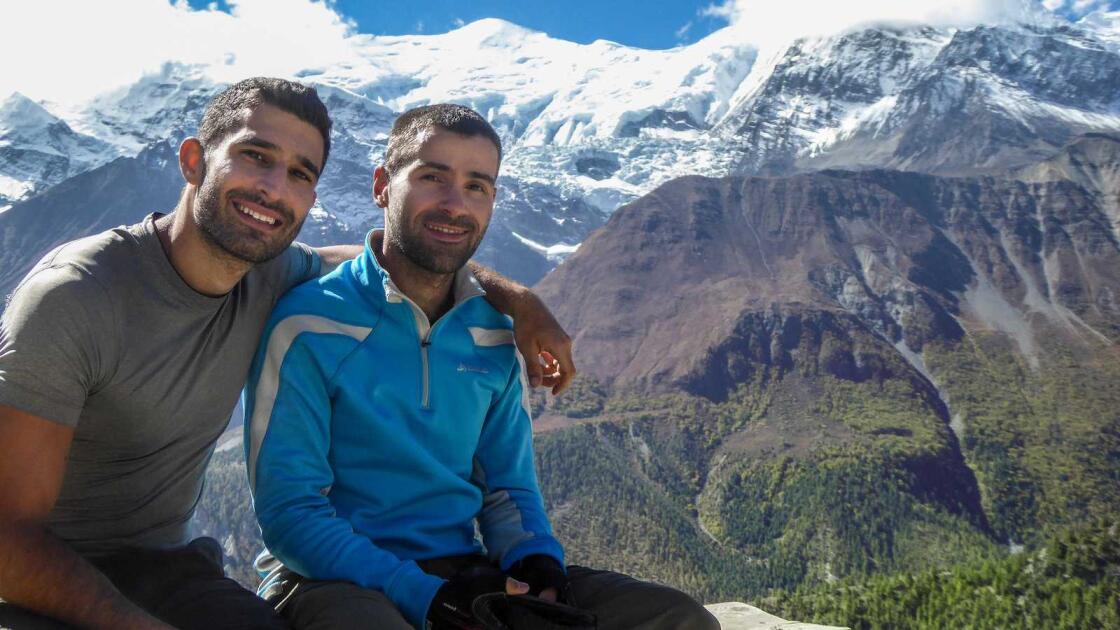Is Kilimanjaro safe for gay travelers? We explore the LGBTQ laws of Tanzania and also provide invaluable practical safety tips for gay travelers who want to do the Kilimanjaro Trek.
Disclaimer: This post is sponsored by Altezza Travel. As always, all opinions are our own.
We love a hike!
And we've done some epic ones on our travels including the Annapurna Trek to Thorong La Pass in Nepal and the Inca Trail to Machu Picchu in Peru.
We're always on the lookout for the next big trekking adventure and for years Kilimanjaro has been high up on our list, especially after fellow LGBTQ traveler friends of ours have raved so much about it.
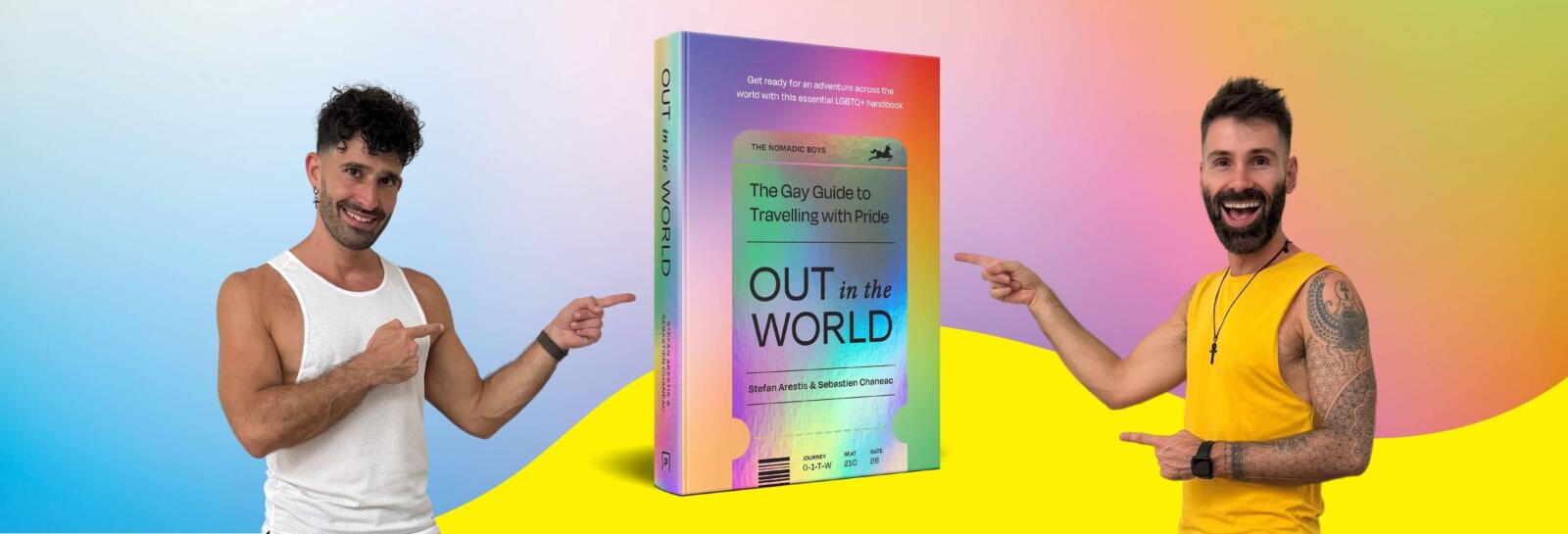
But, after a quick Google search, you realize it's in a country, Tanzania, that doesn't have the greatest take on the LGBTQ community at all! Not only does Tanzania have an archaic anti-gay law on the cards, it has zero positive laws for LGBTQ people.
Yet, much like visiting the Pyramids of Giza in Egypt, should we let this stop us from doing one of the most incredible treks in the world?
We weigh up the pros and cons of trekking Kilimanjaro for gay travelers in light of the strong anti-gay sentiment of the Tanzanian government.
Where is Kilimanjaro?
Mount Kilimanjaro is the highest mountain in Africa standing proud at an altitude of 19,340 feet (5,895 meters). It is also a dormant volcano that forms part of the Kilimanjaro National Park in north Tanzania close to the border with Kenya in East Africa.
As the highest mountain in Africa, Kilimanjaro has gained notoriety as one of The Seven Summits – the world's highest mountains in each continent:
- Everest: in Nepal/China – Asia: 29,035 feet (8,850 meters)
- Aconcagua: in Argentina – South America: 22,831 feet (6,959 meters)
- Denali: in Alaska, USA – North America: 20,310 feet (6,190 meters)
- Kilimanjaro: in Tanzania – Africa: 19,341 feet (5,895 meters)
- Elbrus: in Russia – Europe: 18,510 feet (5,642 meters)
- Vinson: in Antarctica: 16,050 feet (4,892 meters)
- Wilhelm: in Papua New Guinea – Oceania: 14,793 feet (4,509 meters)
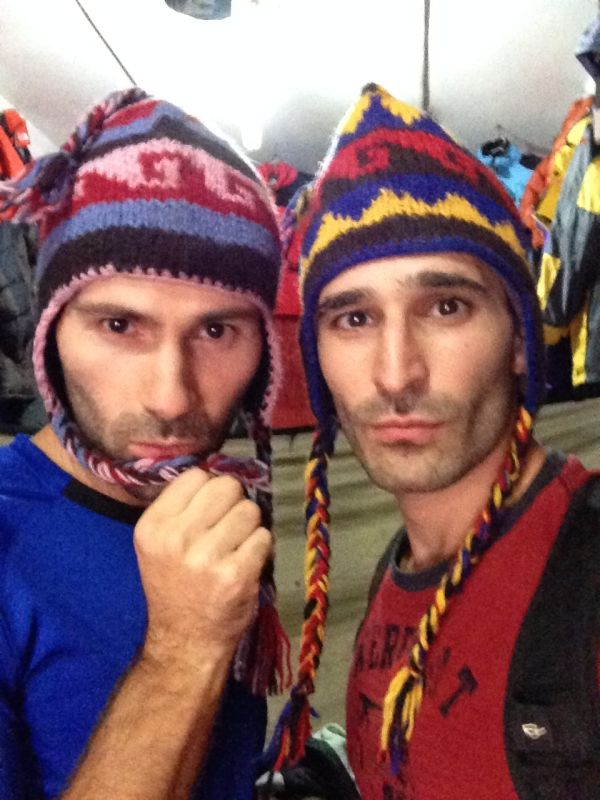
Is Kilimanjaro safe for gay travelers?
At first glance, not really!
The LGBTQ rights in Tanzania are severely lacking. Throughout the country, homosexuality (specifically between men) is criminalized, carrying a maximum penalty of life imprisonment. Interestingly, Tanzanian law makes no reference to lesbians!
We've been to many places on our travels that have nasty anti-gay laws like Tanzania. For example, when leaving Beirut Airport in Lebanon, we were stopped by the Immigration Police who almost arrested us and told us we are blacklisted and must never return. We've also traveled through Russia as a gay couple on the Trans Siberian railway and through much of Asia, a continent rife with anti-gay laws such as Sri Lanka, Myanmar, the Maldives, and Malaysia.
From all these experiences the one thing we learned was it's absolutely fine as long as you're prepared to go back in the closet and act like mates. Hide your relationship and do not post anything on your social media before and during your trip – this was our mistake in Lebanon, which was why we were stopped. Elsewhere we refrained from all PDAs and at worst people just thought we were brothers.
Tour companies and LGBTQ locals in Tanzania advised us that the everyday Tanzanians are good people, who welcome all foreigners and are unlikely to be hostile. However, we were advised to err on the side of caution and to avoid all public displays of affection. One particular company, Altezza Travel, has a wealth of experience dealing with gay couples and can attest that they never had any issues: the guides/drivers were welcoming, and sharing a double bed in hotels was never an issue.
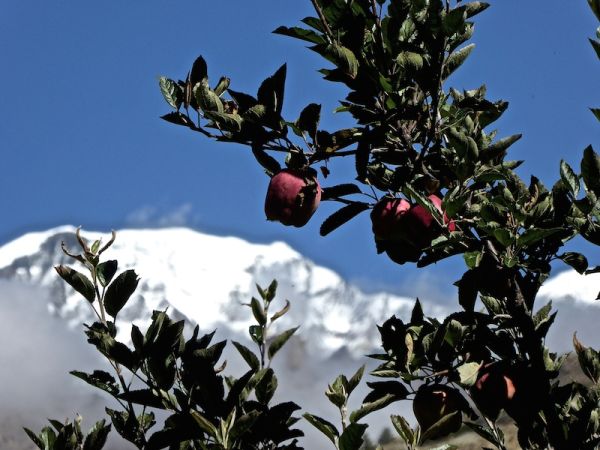
Practical tips for gay travelers to Kilimanjaro
We've put this invaluable list together from first-hand advice from fellow LGBTQ travelers and gay locals:
- Avoid all public displays of affection: best to err on the side of caution and pretend you're two friends traveling together. Yes, it sucks, but better to be safe than sorry.
- Book a tour with a gay friendly operator: we recommend Altezza Travel who have years of experience welcoming gay couples and LGBTQ travelers so they will ensure their guides/drivers will be welcoming to you, and will also ensure you stay in a gay friendly hotel which will allow you to have a double bed.
- Do not post anything online before and during your trip: the internet is monitored in Tanzania and anything LGBTQ-related will be picked up and can cause you a heap of immigration issues. Just save all your epic Kilimanjaro shots for when you've left the tarmac at Kilimanjaro Aiport.
- Avoid Grindr? This one's personal – if you do use it, be cautious about who you're meeting. Be sure to read our safety tips for using gay dating apps.
- Invest in a VPN: sadly Tanzania blocks and/or monitors a lot of LGBTQ websites and apps. We, therefore, advise investing in a good VPN to not only be able to fully access them but to ensure that your web browsing is anonymous and cannot be tracked.
- Get travel insurance! This is a must. If anything should go wrong, flights delayed/canceled, baggage lost or stolen, or medical emergency, you'll be reassured knowing you at least have insurance to cover you.
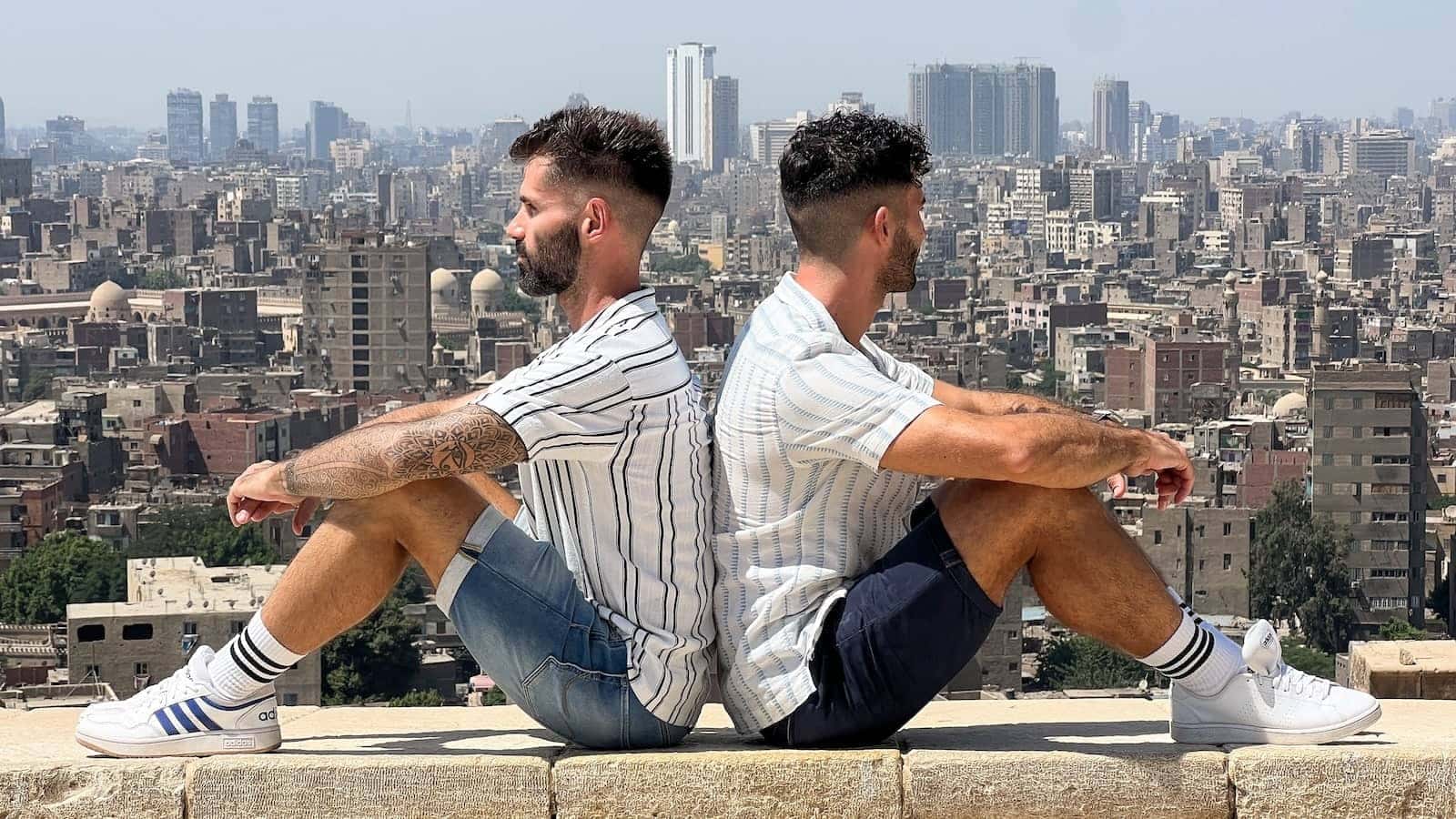
How to get to Kilimanjaro
Kilimanjaro International Airport is the closest airport and has direct flights from some destinations in Europe (such as Istanbul, Amsterdam, and Zurich) as well as the Middle East (Doha).
There are no direct flights from the US to Tanzania. You'll have to get a connecting flight to Amsterdam or Istanbul. From there you can head directly to Kilimanjaro International Airport.
Otherwise, you can get a connecting flight from the capital city, Dar es Salaam (Julius Nyerere International Airport), or from other African hubs like Addis Adaba (Ethiopia) or Nairobi (Kenya).
Once at Kilimanjaro, your guide/driver will pick you up and your tour will start.
What are the best trekking routes at Kilimanjaro?
There are 8 main popular routes up to Kilimanjaro: Lemosho (Shira route), Machame, Marangu, Rongai, Northern Circuit, Umbwe, Kilema, and Western Breach. Each one can be tackled over 5-10 days depending on your itinerary.
If, like us, you're not a fan of camping in tents, then we recommend the Marangu Route. It's the only route on Kilimanjaro with overnight stays in dorm-style huts, but as a result, it's the most popular and gets super busy.
If you're ok roughing it in tents, then we recommend the Machame (6-7 days), Lemosho (6-8 days), or the Rongai Route (6-7 days), which are less busy than Marangu and have high success rates of summiting Kilimanjaro.
If you have the time to spare, we recommend the Northern Circuit Route. It's the longest trail, taking 10 days, but allows climbers to enjoy a quiet trek with minimal crowds. It also has a gradual slope, which is perfect for acclimatizing to the altitude.
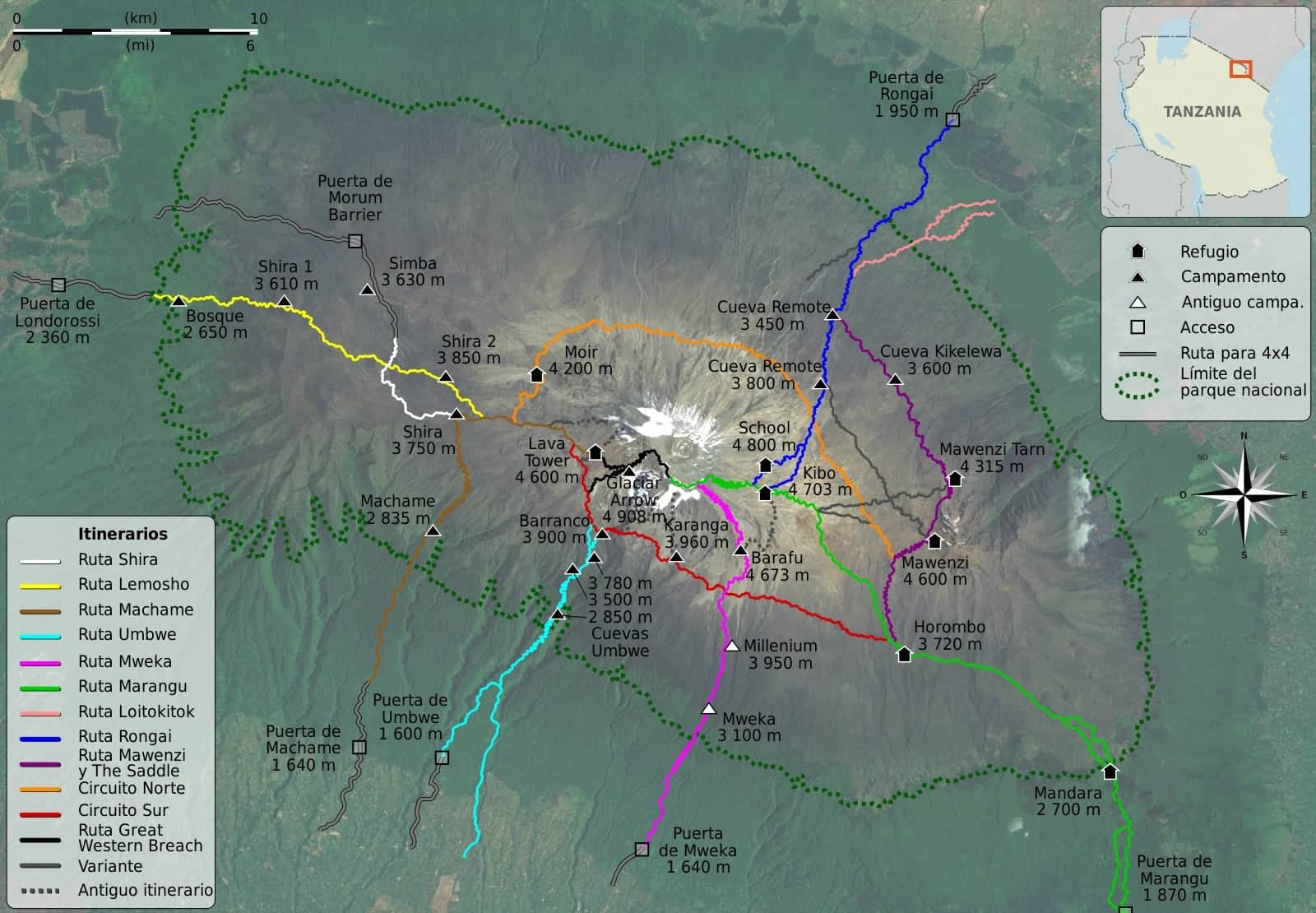
How much does it cost to trek to Kilimanjaro?
Costs vary from $1,700 to $4,000 per person depending on which route you take and the number of days.
To give you an idea, the Marangu Route can be done in 5/6 days and costs start from $1,627 per person. On the other hand, the more challenging Northern Circuit Route with Crater Camping is a 10-day climb and costs start from $3,922 per person.
Our advice for a good gay friendly Kilimanjaro tour company
Altezza Travel is a gay friendly tour company in Tanzania that runs both Kilimanjaro expeditions as well as safari adventures group tours every 2-3 days. They can also arrange a beach vacation on the paradise island of Zanzibar. They are one of the largest tour companies in Tanzania, organizing around 15% of the country's Kilimanjaro climbing expeditions.
Altezza Travel has years of experience welcoming gay couples and LBGTQ travelers from all over the world. They ensure all their guides/drivers are welcoming to same-sex couples as are the hotels they collaborate with. Sharing a double bed is not issue…they get it!
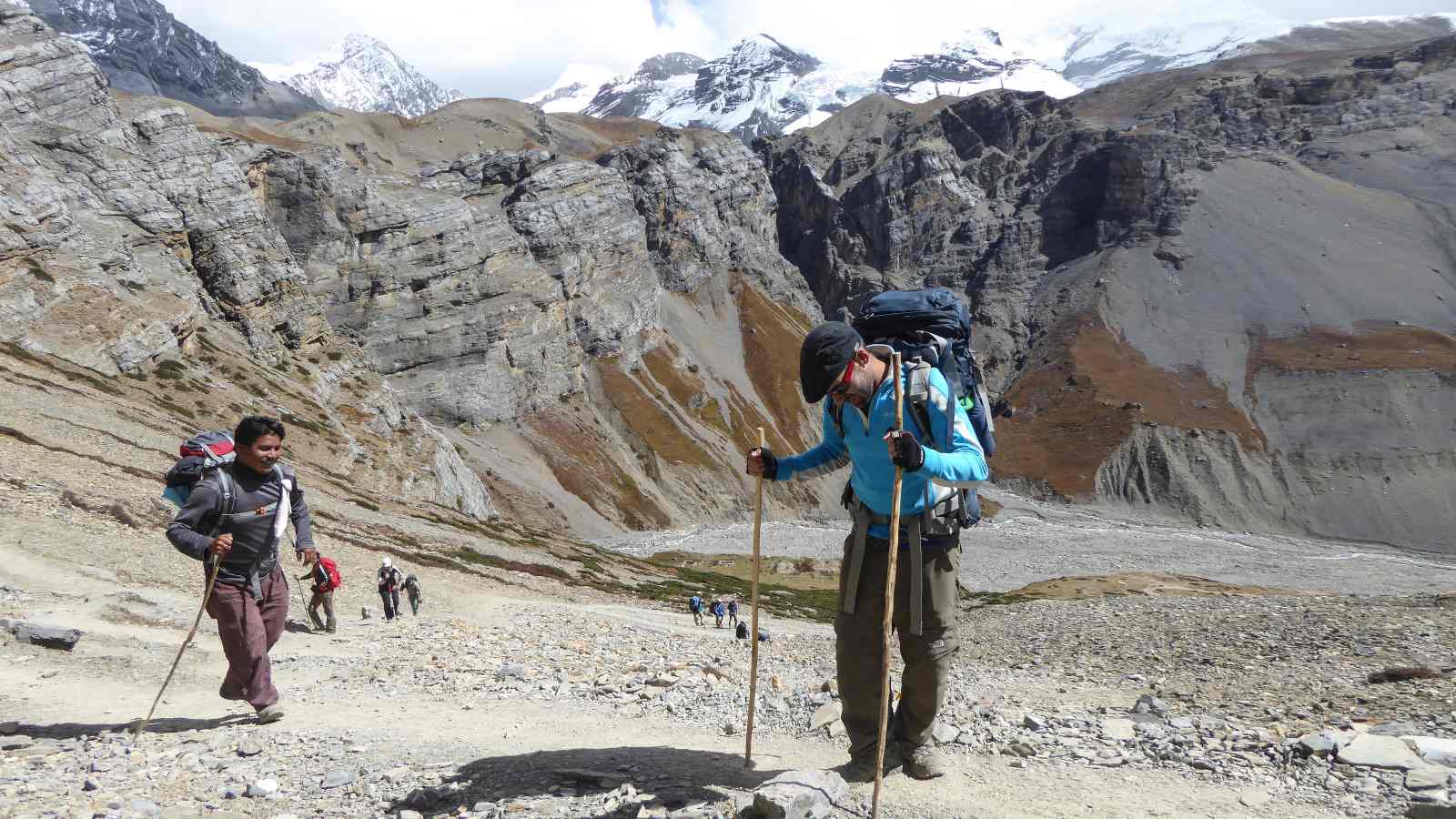
Read more travel stories like this in our book!
Like what you read?
We've got more stories and practical tips like this in our gay travel book, Out in the World, available to order now.
Click on the book to order:

For more inspiration:
- Read which countries we rate to be the most gay friendly countries in the world
- Read about gay life in Turkey in this interview with Saf from Ankara
- Marco from Puglia tells us all about what gay life is like in Italy
- Learn about gay life in Lebanon in this interview with Hadi from Beirut
- Looking for a Speedos summer? Read what we rate as the best gay beaches in the world
- Be sure to also hit up our guide to the best gay swimwear
- And for the best literary inspo read our guide to the best gay books

